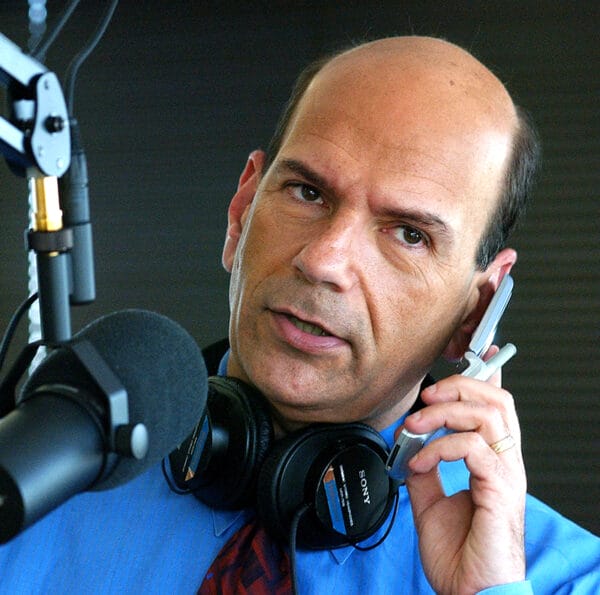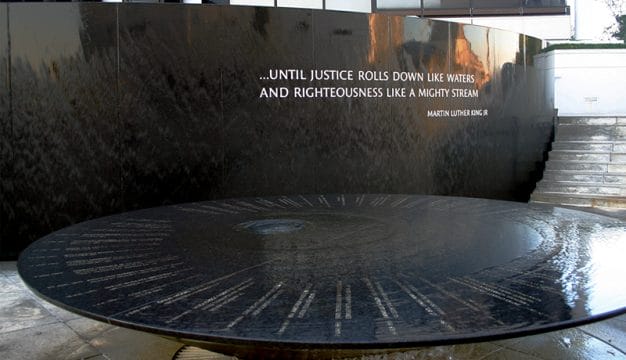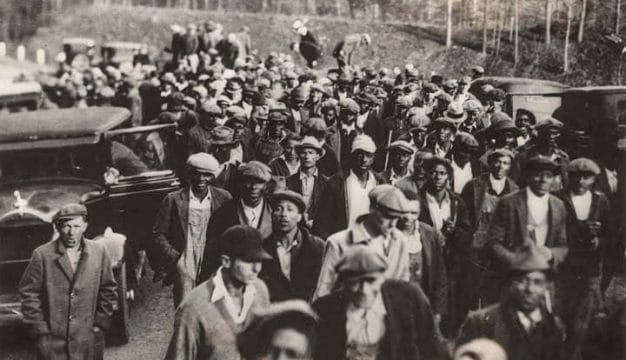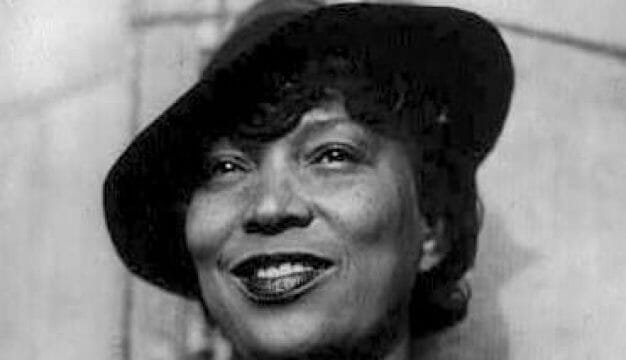Paul Finebaum
Paul Alan Finebaum (1955- ) is a top-rated sportscaster, sports radio show host, sportswriter, and author who made his name covering college football in Alabama. His popular call-in radio show, The Paul Finebaum Show, was based in Birmingham, Jefferson County, for more than 30 years. Now hosted in Charlotte, North Carolina, the show is broadcast five days a week nationally on the ESPN Radio Network and simulcast on the SEC Network, which covers the Southeastern Conference (SEC) of the National Collegiate Athletics Association (NCAA).
 Paul Finebaum
Finebaum was born July 26, 1955, in Memphis, Tennessee, to Benjamin and Gloria Filderman Finebaum, who moved from New York to Memphis with his older sister Pam shortly before his birth. Finebaum’s father, an optometrist, died in 1971 and his mother took a job as a clerk in the Memphis IRS office to support the family. Finebaum attended Christian Brothers and White Station high schools in Memphis before enrolling at University of Tennessee (UT), Knoxville in 1974. Finebaum began his journalism career by covering student government for the UT student newspaper, The Daily Beacon. He soon turned to writing about sports and quickly developed a contrarian style that rankled fans as well as officials in the school’s athletic department. Finebaum became the paper’s sports editor in 1977. During his senior year, Finebaum penned a column about the school basketball team written in the style of an obituary and was subsequently barred from traveling with the team for a game against the University of Kentucky.
Paul Finebaum
Finebaum was born July 26, 1955, in Memphis, Tennessee, to Benjamin and Gloria Filderman Finebaum, who moved from New York to Memphis with his older sister Pam shortly before his birth. Finebaum’s father, an optometrist, died in 1971 and his mother took a job as a clerk in the Memphis IRS office to support the family. Finebaum attended Christian Brothers and White Station high schools in Memphis before enrolling at University of Tennessee (UT), Knoxville in 1974. Finebaum began his journalism career by covering student government for the UT student newspaper, The Daily Beacon. He soon turned to writing about sports and quickly developed a contrarian style that rankled fans as well as officials in the school’s athletic department. Finebaum became the paper’s sports editor in 1977. During his senior year, Finebaum penned a column about the school basketball team written in the style of an obituary and was subsequently barred from traveling with the team for a game against the University of Kentucky.
After graduating in 1978 with a degree in political science, Finebaum began working as a sportswriter for the Shreveport Times in Louisiana. In 1980, he relocated to Alabama to work at the Birmingham Post-Herald. A year later, Finebaum broke a story that alleged basketball player Bobby Lee Hurt had been paid as a player at Butler High School in Huntsville and that he had been provided financial incentives by an University of Alabama (UA) football booster during his recruitment. Finebaum and the paper were subsequently sued by high school principal Edward Seal, who was named in the exposé. Although the lawsuit was unsuccessful, the paper’s management demoted Finebaum to sports columnist.
Finebaum first foray into radio was as a commenter on the Mark and Brian Radio Show on WAPI-AM in Birmingham. In 1984 his own sports call-in show, Fussing with Finebaum, launched on the same channel. As the UA football team suffered its first losing season in 27 years, Finebaum found his voice on the radio with relentless criticism of the program and head coach Ray Perkins. The station shelved the show the next year when the school threatened to deny the station the rights to broadcast Crimson Tide football games. During this same period, Finebaum was a commentator on the television show Six Sports Live on WBRC-TV Channel 6 in Birmingham. In 1990, Finebaum married Linda Hudson, an internist at St. Vincent’s Hospital in Birmingham.
In 1993, Finebaum launched The Paul Finebaum Show on WERC-AM that broadcast five days a week in the Birmingham area. The timing was fortuitous. The University of Alabama, which had won the National Championship the year prior, was rocked by several scandals that eventually resulted in forfeiting eight wins and a tie from the 1993 season. Finebaum’s coverage of the resulting turmoil in the UA football program quickly expanded his listenership, earning him the spot as the top-rated sports call-in show in Birmingham. His 1995 joke book, I Hate Alabama: 303 Reasons You Should Too, was so successful he followed it up with a similar book about the Auburn University (AU) football program and, eventually, a series featuring almost 50 college football teams across the nation. From 1998 to 2002, he was the evening sportscaster at WIAT-TV in Birmingham. In 2001, Finebaum founded the Paul Finebaum Radio Network and syndicated his show across the region. Eventually the show was carried on 27 radio stations in Alabama and seven additional stations across the southeast.
As his radio audience grew, Finebaum’s ability to spark controversy continued unabated. In 2002, he found himself embroiled in another defamation lawsuit brought by an Alabama coach who was fired in the aftermath of an NCAA investigation into the recruitment of Memphis High School player Albert Means. The allegations were later dismissed. One Alabama football coach, Dennis Franchione, refused to be interviewed by Finebaum at all.
The four-hour show moved to WJOX-FM in Birmingham in 2007 and by 2012 the station was the second-highest-rated sports station in the country. Finebaum’s format for his call-in show gives high-spirited SEC fans a forum to discuss issues relating to their team or, more often, their rivals. Many regular callers are now indelibly associated with the show. Finebaum’s most infamous incident occurred in January 2011, when a caller claimed to have poisoned the Toomer’s Corner oak trees on the AU campus. The claim was found to be true, and in 2013, Dadeville resident Harvey Updyke Jr. pleaded guilty to the crime and served six months of a three-year sentence. He continued to call in to Finebaum after his arrest. The two oaks, which were the focal point of Auburn University athletic celebrations where fans “rolled” the trees with toilet paper, were removed in 2013 and replaced in 2015. The incident, as well as many regular callers to the show, featured heavily in the 2011 ESPN documentary “Roll Tide/War Eagle” on the UA-AU football rivalry.
Radio has dominated Finebaum’s career since the 1990s, but he also has maintained a presence in print journalism. After leaving the Post-Herald in 2001, he was a sports columnist for the Mobile Press-Register until 2010. In 2011 and 2012, he wrote a college football column for the Sports Illustrated online magazine SI.com and now contributes to ESPN the Magazine. He also published two collections of columns: The Worst of Paul Finebaum in 1994 and Finebaum Said in 2001. ESPN hired Finebaum in 2013 when his contract with WJOX-FM expired, and he and his wife relocated to Charlotte, where ESPN has studios. Initially distributed nationally by Cumulus Media Networks, ESPN Radio began syndicating the show in August 2016. Sirius XM began carrying the show in 2013, and it now appears on ESPN Xtra channel 85.
Finebaum was also the first hire for the ESPN-owned SEC Network that launched in August 2014. He serves as a commenter on many of the network’s shows and the network telecasts The Paul Finebaum Show. In addition to his SEC Network presence, Finebaum is a regular commentator on ESPN shows such as SportsCenter, College Football Live, and College GameDay. Finebaum was presented the University of Tennessee’s “Accomplished Alumni Award” in 2013. His memoir and ode to the Southeastern Conference, My Conference Can Beat Your Conference, was published in 2014 and spent six months on the New York Times bestseller list.
In Alabama, Finebaum has been a lightning rod of controversies and debate regarding the state’s teams. As a newspaper columnist, his irreverent articles poked fun at the coaches and the shortcomings of their programs while also exposing scandals that buffeted them, and his radio show has become an extremely popular forum for rival fans. He is one of the most recognized and influential sports journalists covering the SEC and was named the National Sportscaster of the Year in 2001, 2002, and 2003 by the Alabama Chapter of the National Sports Media Association. His show was also named the state’s “Best Sports Show” for five consecutive years by the Alabama Associated Press. In March 2013, Sports Illustrated ranked him the 17th most powerful sports media person in the nation.
Selected Works by Paul Finebaum
The Worst of Paul Finebaum (1994)
I Hate Auburn: 303 Reasons Why You Should Too (1994)
I Hate Alabama: 303 Reasons Why You Should Too (1995)
I Hate the NCAA: 303 Reasons Why You Should Too (1995)
Auburn: The Postcard Book (1996)
Alabama: The Postcard Book (1996)
Finebaum Said (2001)
My Conference Can Beat Your Conference: Why the SEC Still Rules College Football (2014; with Gene Wojciechowski)
Additional Resources
St. John, Warren. Rammer Jammer Yellow Hammer: A Road Trip into the Heart of Fan Mania. New York: Three Rivers Press, 2004.
Wiedeman, Reeves. “King of the South: How Paul Finebaum Became Alabama’s Biggest Booster.” New Yorker, December 10, 2012; http://www.newyorker.com/magazine/2012/12/10/king-of-the-south.



